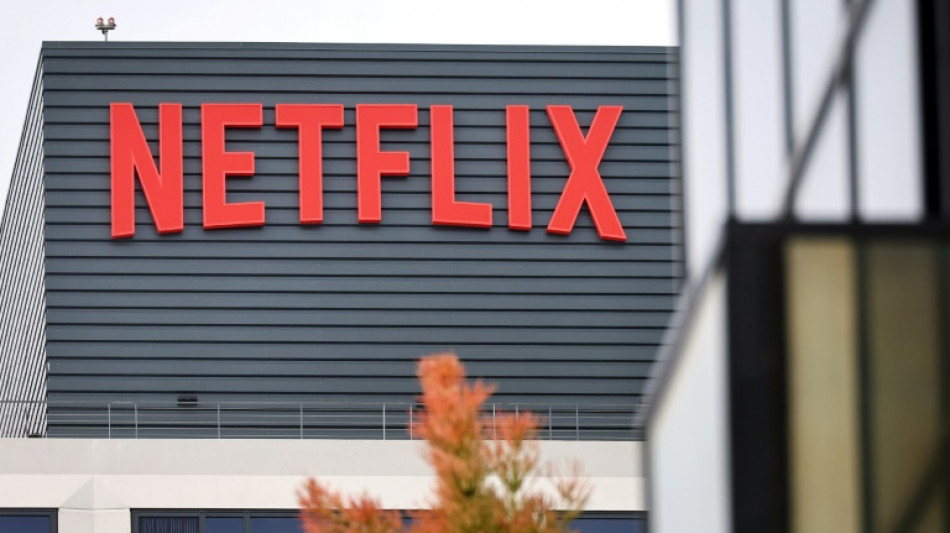
-
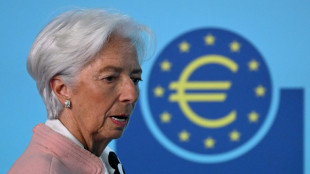 ECB's Lagarde hopes Trump won't fire US Fed chief Powell
ECB's Lagarde hopes Trump won't fire US Fed chief Powell
-
Gold hits record as Trump fuels Fed fears, Wall Street rebounds
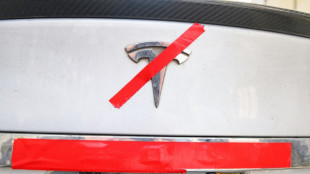
-
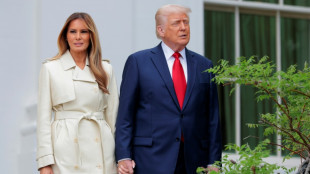 The world leaders set to attend Francis's funeral
The world leaders set to attend Francis's funeral
-
East Timor mourns Pope Francis months after emotional visit

-
 US envoy to visit Moscow as US pushes for ceasefire
US envoy to visit Moscow as US pushes for ceasefire
-
At least 24 killed in Kashmir attack on tourists: Indian police source

-
 Philippine typhoon victims remember day Pope Francis brought hope
Philippine typhoon victims remember day Pope Francis brought hope
-
IMF slashes global growth outlook on impact of Trump tariffs
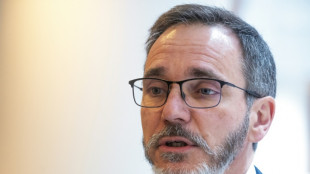
-
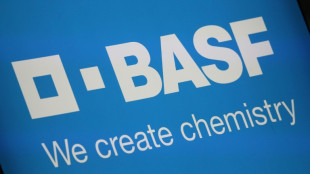 BASF exits Xinjiang ventures after Uyghur abuse reports
BASF exits Xinjiang ventures after Uyghur abuse reports
-
Nordics, Lithuania plan joint purchase of combat vehicles

-
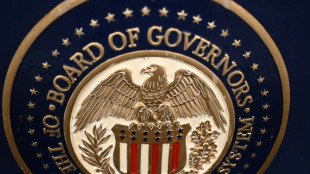 Gold hits record, stocks diverge as Trump fuels Fed fears
Gold hits record, stocks diverge as Trump fuels Fed fears
-
World could boost growth by reducing trade doubt: IMF chief economist
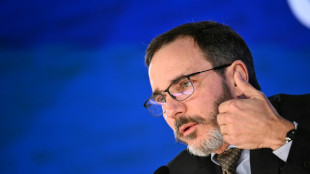
-
 IMF slashes global growth outlook on impact of US tariffs
IMF slashes global growth outlook on impact of US tariffs
-
IMF slashes China growth forecasts as trade war deepens

-
 Skipper Shanto leads Bangladesh fightback in Zimbabwe Test
Skipper Shanto leads Bangladesh fightback in Zimbabwe Test
-
US VP Vance says 'progress' in India trade talks

-
 Ex-England star Youngs to retire from rugby
Ex-England star Youngs to retire from rugby
-
Black Ferns star Woodman-Wickliffe returning for World Cup

-
 Kremlin warns against rushing Ukraine talks
Kremlin warns against rushing Ukraine talks
-
Mbappe aiming for Copa del Rey final return: Ancelotti

-
 US universities issue letter condemning Trump's 'political interference'
US universities issue letter condemning Trump's 'political interference'
-
Pope Francis's unfulfilled wish: declaring PNG's first saint

-
 Myanmar rebels prepare to hand key city back to junta, China says
Myanmar rebels prepare to hand key city back to junta, China says
-
Hamas team heads to Cairo for Gaza talks as Israel strikes kill 26

-
 Pianist to perform London musical marathon
Pianist to perform London musical marathon
-
India's Bumrah, Mandhana win top Wisden cricket awards

-
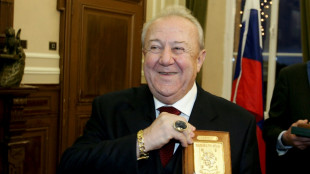 Zurab Tsereteli, whose monumental works won over Russian elites, dies aged 91
Zurab Tsereteli, whose monumental works won over Russian elites, dies aged 91
-
Roche says will invest $50 bn in US, as tariff war uncertainty swells

-
 Pope Francis's funeral set for Saturday, world leaders expected
Pope Francis's funeral set for Saturday, world leaders expected
-
US official asserts Trump's agenda in tariff-hit Southeast Asia
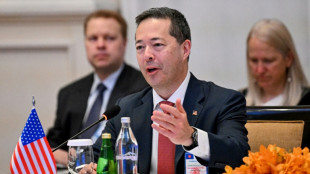
-
 World leaders set to attend Francis's funeral as cardinals gather
World leaders set to attend Francis's funeral as cardinals gather
-
Gold hits record, stocks mixed as Trump fuels Fed fears
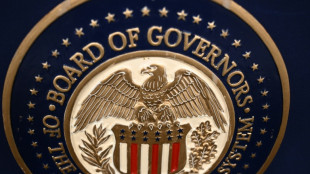
-
 Roche says will invest $50 bn in US over next five years
Roche says will invest $50 bn in US over next five years
-
Fleeing Pakistan, Afghans rebuild from nothing

-
 US Supreme Court to hear case against LGBTQ books in schools
US Supreme Court to hear case against LGBTQ books in schools
-
Pistons snap NBA playoff skid, vintage Leonard leads Clippers

-
 Migrants mourn pope who fought for their rights
Migrants mourn pope who fought for their rights
-
Duplantis kicks off Diamond League amid Johnson-led changing landscape

-
 Taliban change tune towards Afghan heritage sites
Taliban change tune towards Afghan heritage sites
-
Kosovo's 'hidden Catholics' baptised as Pope Francis mourned

-
 Global warming is a security threat and armies must adapt: experts
Global warming is a security threat and armies must adapt: experts
-
Can Europe's richest family turn Paris into a city of football rivals?

-
 Climate campaigners praise a cool pope
Climate campaigners praise a cool pope
-
As world mourns, cardinals prepare pope's funeral
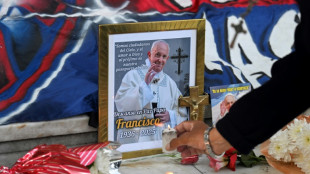
-
 US to impose new duties on solar imports from Southeast Asia
US to impose new duties on solar imports from Southeast Asia
-
Draft NZ law seeks 'biological' definition of man, woman
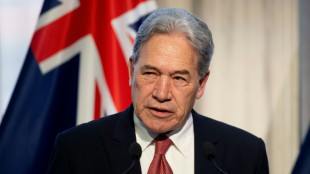
-
 Auto Shanghai to showcase electric competition at sector's new frontier
Auto Shanghai to showcase electric competition at sector's new frontier
-
Tentative tree planting 'decades overdue' in sweltering Athens

-
 Indonesia food plan risks 'world's largest' deforestation
Indonesia food plan risks 'world's largest' deforestation
-
Gold hits record, stocks slip as Trump fuels Fed fears
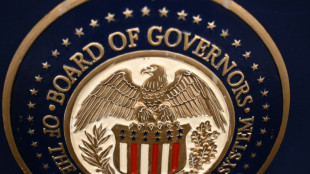

In volatile election season, US companies battle 'brand disinformation'
From Google to Netflix, prominent US companies are battling internet boycott calls over their perceived political leanings in a polarizing election season that has exposed them to what researchers call "brand disinformation."
The online campaigns, which falsely claim both Netflix and Google are funding or favoring Democratic nominee Kamala Harris ahead of the November election, illustrate how brands are vulnerable to political falsehoods that can expose them to financial perils.
Those calling for a boycott, researchers say, include fake accounts on the platform X. The site is owned by Elon Musk, who has endorsed Donald Trump and appears to exert an outsized influence on voters through the platform, which has become a hotbed of disinformation.
The recent boycott calls targeting Netflix, which also spread on other platforms such as TikTok and Instagram, were triggered by false claims of a $7 million donation from the streaming service to Harris's campaign, AFP fact-checkers reported.
Reed Hastings, the service's co-founder and executive chairman, made a contribution to Vice President Harris's campaign but the company said it was a "personal donation" and had "no connection to Netflix."
Still, calls to "cancel Netflix" flooded social media sites, with many users falsely claiming the company was indirectly funding the Harris campaign. Some shared screenshots of their canceled subscriptions.
Nearly a quarter of the boycott calls on X were traced to fake profiles, which have consistently expressed support for Trump through the past year, according to the disinformation security company Cyabra.
"Brand disinformation campaigns in today's polarized climate have far-reaching impacts beyond just corporate reputation," Dan Brahmy, Cyabra's chief executive, told AFP.
"The Netflix case demonstrates how rapidly these campaigns spread, potentially reaching hundreds of millions" and shows how "disinformation can manipulate public opinion and consumer behavior," he said.
- 'Delicate balancing act' -
As the hotly contested election nears, Brahmy cautioned, "brands must be vigilant."
Similar boycott calls recently targeted Google after unfounded claims that the company censors election-related content and manipulates search engine results in favor of Harris.
Cyabra identified hundreds of fake profiles on X –- many with a recent history of pro-Trump content -– which called for a boycott of the tech giant while promoting another search engine.
Musk, who has repeatedly criticized Google, played a "significant role in amplifying negative content" against the company, Cyabra said in a report.
In one evidence-free tweet in late July, Musk wrote: "Wow, Google has a search ban on President Donald Trump! Election interference?"
Google did not respond when AFP asked about the allegations, or about the impact of the boycott calls.
Earlier this month, a survey by the portal Sitejabber showed 30 percent of respondents had boycotted a brand over political reasons in the past 12 months, while 41 percent said they prefer that companies keep their "political positions private."
"Brands face a delicate balancing act this election year," Michael Lai, chief executive of Sitejabber, told AFP.
"While staying apolitical may seem safe, it's important for businesses to understand that even neutrality can be interpreted as a position."
- 'Chaos and distrust' -
Another survey by market research firm Certus Insights showed that consumers were divided over whether corporations should engage in partisan politics, with more than half the respondents saying companies should refrain from doing so.
Other surveys suggest consumers consider it the brand's fault if its advertising appears next to polarizing, false or defamatory content.
Such concerns have prompted many advertisers to abandon X, which has scaled back content moderation and restored once-banned accounts known to peddle disinformation or hate following Musk's 2022 acquisition of the platform.
Some also left in light of Musk's own controversial musings on the site.
Earlier this month, X sued an advertising group and several large corporations, accusing them of causing billions of dollars of losses by "illegally" boycotting his site.
"Disinformation creates chaos and distrust. Brands normally benefit from a well-informed society," Claire Atkin, co-founder and chief executive of the anti-disinformation watchdog Check My Ads, told AFP.
"On the internet, advertisers have let tech companies take their ads away from the news and straight into the arms of bad actors. Now, unfortunately, we are all experiencing the consequences."
I.Stoeckli--VB

